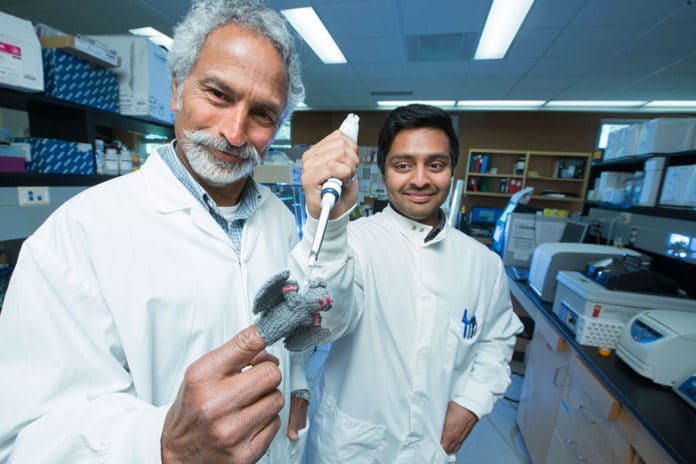Coronaviruses that cause severe acute respiratory syndrome (SARS) and the Middle East respiratory syndrome (MERS) are speculated to have originated in bats.
While these viruses can cause serious and often fatal disease in people, but they spare bats, suggests a new study.
A study by the University of Saskatchewan (USask) has found that bats can carry the Middle East respiratory syndrome (MERS) coronavirus without getting sick. The bats don’t get rid of the virus and yet don’t get sick.
Scientists demonstrated that cells from an insect-eating brown bat could be persistently infected with MERS coronavirus for months, due to important adaptations from both the bat and the virus working together.
USask microbiologist Vikram Misra said, “Instead of killing bat cells as the virus does with human cells, the MERS coronavirus enters a long-term relationship with the host, maintained by the bat’s unique ‘super’ immune system. SARS-CoV-2 is thought to operate in the same way.”
Misra explained, “Our work suggests that stresses on bats–such as wet markets, other diseases, and possibly habitat loss–may have a role in coronavirus spilling over to other species. When a bat experiences stress to their immune system, it disrupts this immune system-virus balance and allows the virus to multiply.”
VIDO-InterVac scientist Darryl Falzarano, who co-led the bat study said, “We see that the MERS coronavirus can very quickly adapt itself to a particular niche, and although we do not completely understand what is going on, this demonstrates how coronaviruses are able to jump from species to species so effortlessly.”
Up until now, the SARS-CoV-2 has infected more than 3.5 million people worldwide and killed seven percent of those infected. Conversely, the MERS virus infected about 2,500 individuals in 2012 yet killed one in each three individuals tainted. There is no vaccine for both viruses. While camels are the known hosts of MERS-CoV, bats are suspected to be the ancestral host.
Misra said, “Coronaviruses rapidly adapt to the species they infect, but little is known on the molecular interactions of these viruses with their natural bat hosts. A 2017 USask-led study showed that bat coronaviruses could persist in their natural bat host for at least four months of hibernation.”
“When exposed to the MERS virus, bat cells adapt–not by producing inflammation-causing proteins that are hallmarks of getting sick, but rather by maintaining a natural antiviral response, a function which shuts down in other species, including humans. Simultaneously, the MERS virus also adapts to the bat host cells by very rapidly mutating one specific gene.”
“Operating together, these adaptations result in the virus remaining long-term in the bat but being rendered harmless until something–such as disease or other stressors–upsets this delicate equilibrium.”
In the future, scientists will focus on understanding how the bat-borne MERS virus adapts to infection and replication in camelid (a group of even-toed ungulates that includes camels) and human cells.
Journal Reference:
- Arinjay Banerjee, Selection of viral variants during persistent infection of insectivorous bat cells with Middle East respiratory syndrome coronavirus. DOI: 10.1038/s41598-020-64264-1
